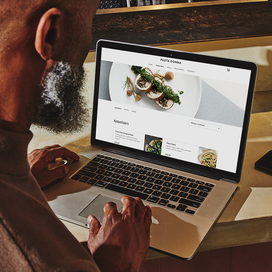Seven years ago Peter Phillips was known as what he calls “the construction guy.” He’d built a thriving, successful career in real estate and construction, but after a friendly cookie competition between him and his friend from high school (and eventual co-founder), Theodore Gailas, everything changed. Spoiler alert: they both won. Their cookies turned out to be so good that they opened a cookie business named Chip City (formerly called Chip, NYC) as a side hustle in a 250-square-foot storefront in New York City.
Today, the business has over 50 storefront locations across nine states serving up hundreds of thousands of cookies a week. Thirty of those stores have opened in the past two years alone. In addition, Chip City has raised $17.5 million from Enlightened Hospitality to date.
So, what’s the key to success? According to Phillips, it’s taking a strategic approach to staffing. “Having the team invested in the brand with you [is key]. The mentality of somebody who has ownership in a company is always going to differ from that of an employee. And that’s been the model that we followed to make sure that we have the right people in the right places to ensure continued success and growth.”
Leading a team with an ownership mentality means that they can go out and create a consistent, intentional experience with every customer who walks through the doors of Chip City, with the help of Square tools.
Challenge: Taking care of customers in a rapidly changing landscape
Phillips notes that there are a host of challenges plaguing business owners right now. Beyond the operational challenges like supply chain issues, he notes competing in an ever-changing landscape as a distinct challenge. With social media and virality being key to a lot of businesses marketing plans, he admits that Chip City sometimes struggles to find balance. “[We’re in this] TikTok generation, where [every day] you’re onto the next clip and it’s very difficult to keep up,” he explained.
The influx of TikTok and other social media apps increases the likelihood of regular and potential customers being “on to the next clip” and constantly being exposed to different competitors. As a result, Chip City dabbled in paid marketing but Phillips admitted that the business saw little return on investment.
So Phillips was faced with the ultimate question: “How do we continue to take care of the consumer and still maintain a healthy business in the ever-changing landscape that we’ve been dealing with right now?”

Solution: Building a focused, in-person customer experience
Chip City ultimately decided to make hospitality their differentiator. “We’re focused on our operations and the experience that the customers have when they come in the store, because the reality of it is we’re not the first and we’re definitely not going to be the last company to sell cookies and milk to people,” he said. “It’s about how you operate versus the next guy.”
Chip City leverages in-store kiosks to create an experience where the customer can interact with the menu at their leisure and staff can guide them through any questions or concerns. He notes that this set-up has paved the way for better sales and stronger customer interaction because it creates a quicker and seamless checkout experience with Square Register.
“Having a solution that is simple and easy for not only the consumer to use but also for staff to use is very important because no matter how good of a company you run, you’re not going to keep people forever. And as staff turns over, you want to try to limit the amount of time it takes them to understand the technologies they have to work with because that is going to impact customer experience,” said Phillips.
An experience that enables the customer to focus solely on the menu and staff to focus solely on the customer and the checkout experience has been a key part of customer relationship building for the business. “Hospitality is a word that I use multiple times every day,” he said. “Little things like reading the customer when they walk in the door and asking people how their day’s going and taking the time to walk them through the flavors on the menu, all those little things totally changed the experience for the consumer.”
Zeroing in on the experience has had a tangible impact on customer loyalty. “Through Square Loyalty, we have a point system where every cookie that you buy will earn you certain points that you can redeem for rewards, and we’ve had tremendous success with that. [In fact], our customers are repeat customers for the most part.”
Building and maintaining customer loyalty has allowed the business to not only expand into different states and locations, but it’s also created opportunities for the business to expand beyond cookies.


Impact: Customer loyalty deep enough to build a universe
With die-hard customers, Chip City has been able to build a universe around the brand. With partnerships with nostalgic, youth-centered brands like Scooby Doo, Rugrats, and others, Chip City has launched its own mascot named Mr. Chip (sometimes referred to as “Chippy”) and sells holiday ornaments with the character on it. These marketing efforts are not just another way for the business to generate revenue, but it’s another way for the business to connect with customers.
“One of the things that I’ve come to realize about a lot of the brands that I’ve admired is that they connect with people from a young age…when you love something as a kid, you’re going to remember it forever.” Mr. Chip is a way for the brand to differentiate itself and market to families and children so that the brand can have longevity and capture the next generation.
The business even sells the occasional plush doll of Mr. Chip and he’s heard personal stories about children sleeping with every night. With deep brand affinity and massive growth, Phillips notes that the opportunities for Chip City are limitless. He teased the idea of a possible animated series around the concept of Chip City, but he doesn’t want to lose focus on the one thing that’s made Chip City’s growth possible: the experience.
Phillips said: “The way I look at it is you can always recapture some margin, but you can’t recapture a customer’s experience. So that’s always been the priority for us, is making sure that the customer is getting the experience that we want them to have and the business side of that will follow.”
![]()















